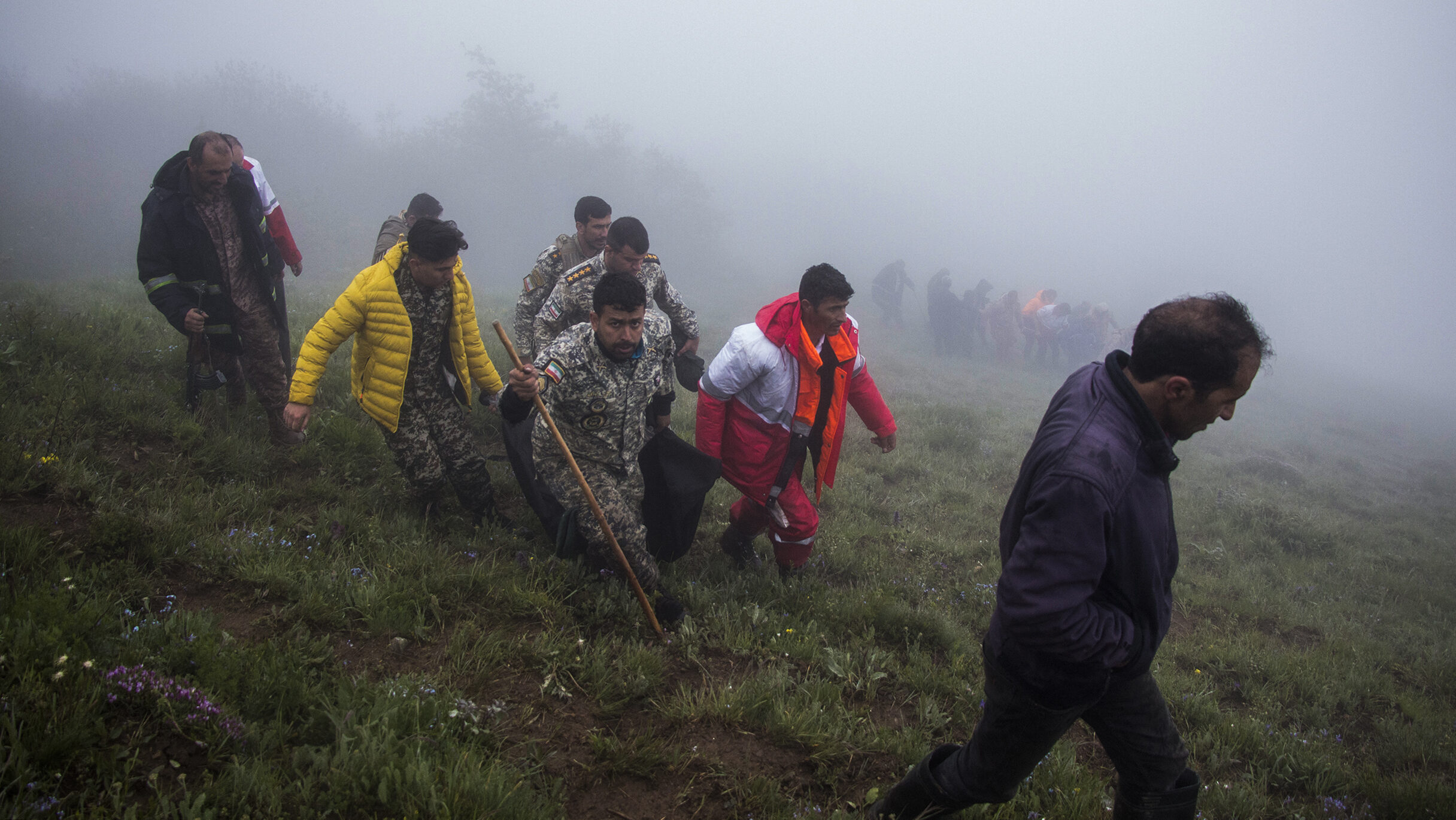Who Shot Down Raisi’s Helicopter?
Al-Arabiya, Saudi Arabia, May 25
The region is abuzz over the circumstances that led to the crash of Iranian President Ebrahim Raisi’s plane last week. Speculations, conspiracies, and rumors abound, with the prevailing theory suggesting that the crash was not an accident but a deliberate assassination. What will Iranian investigations ultimately conclude? It will take time to contain the situation, absorb the shock, and consider all possibilities meticulously. There are two potential conclusions that investigations might reach. First, the crash was an accident caused by technical malfunction, pilot error, adverse weather conditions, or a combination of all of the above. Second, the incident was a planned assassination targeting President Raisi and his foreign minister, Hossein Amir-Abdollahian, with three potential parties behind the scheme. The first party that could be implicated is an internal faction within Iran, entangled in the conflict over the succession of Supreme Leader Ali Khamenei. Rumors suggest that Mojtaba Khamenei, the supreme leader’s son, harbors ambitions to succeed his father. Observers of Iranian affairs posit that he might have perceived Raisi as a rival for the position of “Guardian of the Jurist” and thus sought to eliminate him. Such a hypothesis, however, could lead to severe internal repercussions, including open conflict that threatens the regime’s stability—an outcome the supreme leader would find unacceptable. As a result, the investigation is unlikely to point fingers at domestic actors. The second potential culprit is the Israeli Mossad. Historical context lends some credence to this hypothesis; the Mossad has previously been linked to the assassinations of Iranian nuclear scientists and officials both within Iran and abroad in Lebanon, Syria, and Iraq. The fact that the crash occurred after Raisi’s return from a ceremony marking the opening of a dam with neighboring Azerbaijan—a country with strong security ties to Israel—adds another layer of intrigue. However, implicating Azerbaijan could strain Iran’s relationship with Turkey, a nation pivotal to Azerbaijan’s recent military successes over Armenia. Given the geopolitical landscape, Iran may not wish to antagonize Turkey at this juncture. Alternatively, the assassination could have been an entirely Israeli operation, devoid of Azerbaijan’s involvement. Israel, still reeling from last month’s Iranian ballistic missile and drone strikes, might have sought revenge. American pressure, keen to avoid a regional escalation with US elections on the horizon, tempered Israel’s response. Officially blaming Israel for the assassination would compel Iran into a large-scale retaliation, an undesirable scenario given Iran’s current economic and domestic challenges, compounded by the fact that a war with Israel could play into the hands of Benjamin Netanyahu and Israel’s extreme right wing, eager to deflect international scrutiny over the Gaza conflict and engage the US and the West in a broader war. Given these complexities, it is unlikely that the Iranians will officially accuse Israel. Doing so would necessitate a violent response, sparking an open war that neither Iran nor the United States desires. Instead, it is more plausible that the Iranian investigation will attribute the crash to adverse weather conditions while continuing to direct mobilizational rhetoric against America, blaming it for the broader economic blockade and resultant misfortunes, as hinted in a tweet by former Foreign Minister Mohammad Javad Zarif. —Saad bin Teflah al-Ajmi (translated by Asaf Zilberfarb)
This holiday season, give to:
Truth and understanding
The Media Line's intrepid correspondents are in Israel, Gaza, Lebanon, Syria and Pakistan providing first-person reporting.
They all said they cover it.
We see it.
We report with just one agenda: the truth.



